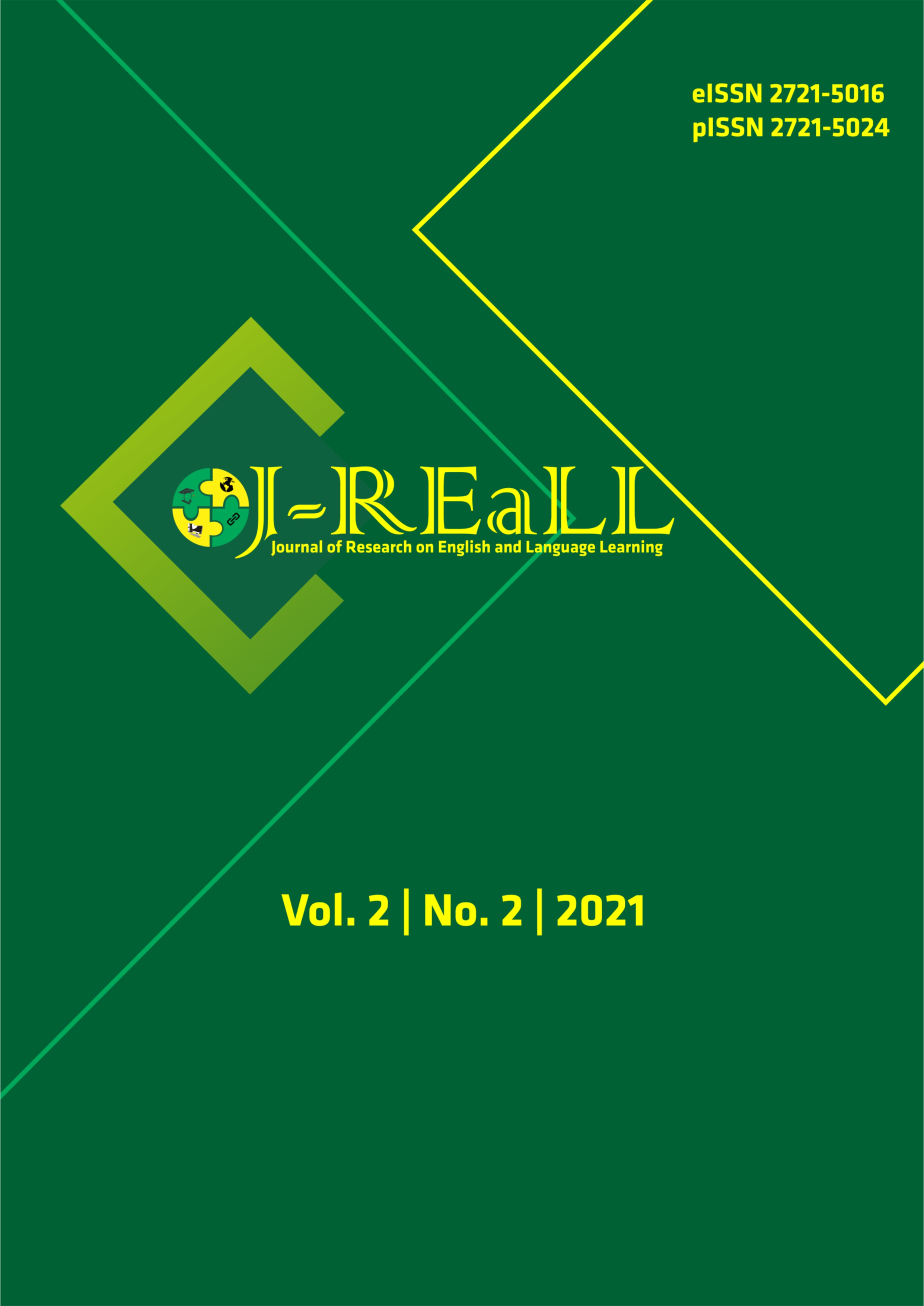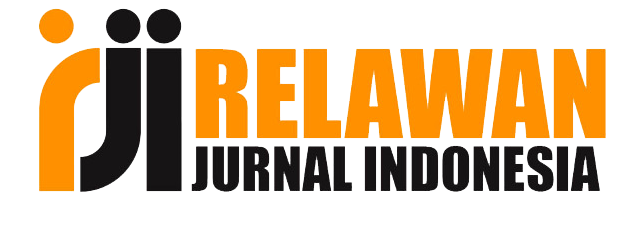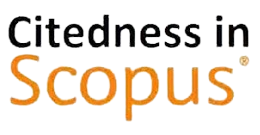The perception of foreign language students toward the implementation of inclusive education
DOI:
https://doi.org/10.33474/j-reall.v2i2.10235Keywords:
perception, inclusive education, the student with disabilitiesAbstract
This research aimed to describe the implementation of inclusive education and identify the challenges students might have in English courses at SMK N 3 Singaraja. The research subjects were students with disabilities and regular students who studied at XI MM 2 (Multi-media). This research was a case study that used the descriptive qualitative method. The data collection was done by conducting a questionnaire and interview guide sequentially. The student's perception was measured from 3 aspects, namely perceiver, target, and social setting. The result from the questionnaire and interview was analyzed continuously and described descriptively. This research showed that students with disabilities and regular students have a good perception of inclusive education implementation. However, there were several challenges, such as lacking adaptation with inclusive classrooms, time, facilities, and special teachers. It implied that the teacher and school's staff should give examples, more chances, and more attention to the inclusive class students.
References
Adiputra, S., Mujiyati, & Hendrowati, T. Y. (2019). Perceptions of Inclusion Education by Parents of Elementary School-Aged Children in Lampung, Indonesia. International Journal Od Instruction, 12(1), 199-212. https://doi.org/https://doi.org/10.29333/iji.2019.12113a
Avcioglu, H. (2017). Classroom Teachers' Behaviors and Peers' Acceptance of Students in Inclusive Classrooms. Educational Sciences: Theory and Practice, 2, 463-492. https://doi.org/10.12738/estp.2017.2.0034
Cohen, L., Manion, L., & Morrison, K. (1928). Research Methoda in Education (8th ed.). New York: Routledge.
Ediyanto, Atika, I. N., Kawai, N., & Prabowo, E. (2017). Inclusive Education In Indonesia From The Perspective Of Widyaiswara In Centre For Development And Empowerment Of Teachers And Education Personnel Of Kindergartens And Special Education. Indonesian Journal of Disability Studies (IJDS), 04(02), 104-116.
Khan, K. I., Hashmi, S., & Khanum, N. (2017). Inclusive Education in Government Primary Schools: Teacher Perceptions. Journal Od Education and Educational Development, 4(1), 32-47.
Miles, M. B., & Huberman, A. M. (1994). Qualitative Data Analysis: An Expanded Sourcebook (2nd ed.). United States of America: SAGE Publications.
Okyere, C., Aldersey, H. M., & Lysaght, R. (2019). The experiences of teachers of children with intellectual and developmental disabilities in inclusive schools in Accra, Ghana. African Journal of Disability, 19(4), 283-294. https://doi.org/10.1111/1471-3802.12447
Permendiknas Nomor 70 Tahun 2009 tentang Pendidikan Inklusif
Rasmitadila, & Tambunan, A. R. S. (2018). Readiness of General Elementary Schools to Become Inclusive Elementary Schools: A Preliminary Study in Indonesia. International Journal of Special Education, 33(2), 366-381.
Robbins, S. P., & Judge, T. A. (2013). Organizational Behavior (15th ed.). United States of America: Pearson Education.
Schwab, S., Sharma, U., & Loreman, T. (2018). Are we included? Secondary students' perception of inclusion climate in their schools. Teaching and Teacher Education, 75, 31-39. https://doi.org/10.1016/j.tate.2018.05.016
Sunardi, Maryadi, S. (2014). The Effectiveness of a Two-day Inclusion Workshop on Teachers' Attitudes , Understanding , and Competence in Inclusive Education. World Journal of Education, 4(5), 77-85. https://doi.org/10.5430/wje.v4n5p77
Tahir, K., Brian, D., & Michael, H. (2019). A Case Study on the Ecology of Inclusive Education in the United States. Journal for Leadership and Instruction, 17-24.
Zhang, Y., Rosen, S., Cheng, L., & Li, J. (2018). Inclusive Higher Education for Students with Disabilities in China: What Do the University Teachers Think? Higher Education Studies, 8(4), 104-115. https://doi.org/10.5539/hes.v8n4p104
Downloads
Published
How to Cite
Issue
Section
License
Copyright (c) 2021 Cahya Kusuma Negara, Dewa Ayu Eka Agustini, Luh Diah Surya Adnyani

This work is licensed under a Creative Commons Attribution 4.0 International License.
Authors who publish this journal agree to the following terms:
- Authors retain copyright and grant the journal right of first publication with the work simultaneously licensed under a Creative Commons Attribution License that allows others to share the work with an acknowledgement of the work's authorship and initial publication in this journal.
- Authors can separately make additional contractual arrangements for non-exclusive distribution published by the journal (e.g., publish it in a book), with an acknowledgement of its initial publication in this journal.
- Authors are allowed and encouraged to send their work via online (e.g., in the institutional repositories or their website) after published by the journal.






















